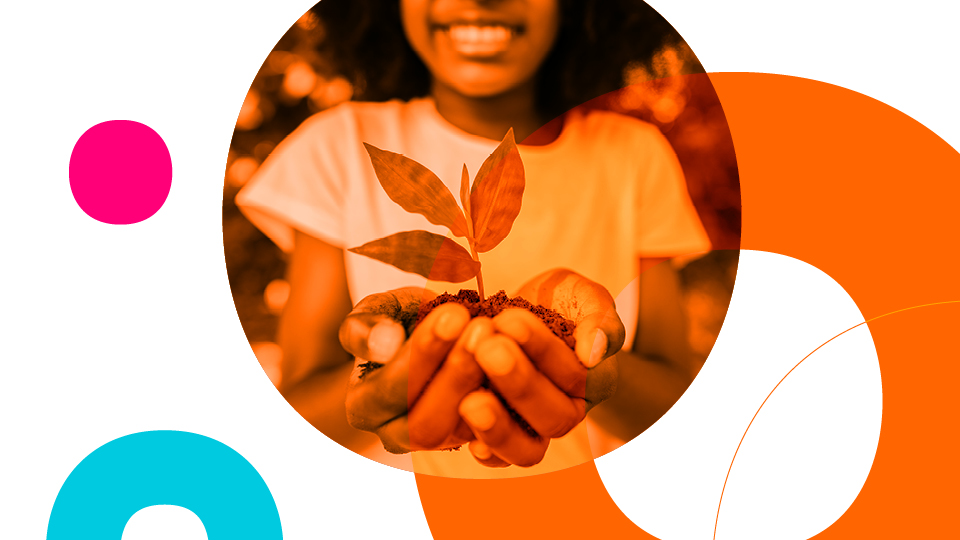Closing The Gender Gap In IP: Women and the Sustainable Development Goals
April 29, 2024
How can IP help women’s contribution to the Sustainable Development Goals (SDGs)? Our virtual sharing session, held on April 23, 2024, brought together women entrepreneurs from Chile, Lebanon, Ethiopia, Papua New Guinea and Georgia, to answer that question. Each of them discussed how their work contributes to the attainment of the SDGs, demonstrating how achieving gender equality and women’s empowerment is integral to all of the 17 Goals.

A virtual sharing session on Women and the SDGs took place on April 23, 2024. The session was opened by Mr. Edward Kwakwa, Assistant Director General of the Global Challenges and Partnerships Sector at WIPO, who emphasized the integral role of IP in driving progress towards the SDGs. Mr. Kwakwa mentioned WIPO’s initiatives, including WIPO GREEN, Accessible Books Consortium (ABC), and Technology Innovation and Support Centres (TISCs), that have contributed directly to specific SDGs by facilitating innovation, inclusivity, and sustainable development. He explained that these efforts align with the SDGs, offering a universally agreed-upon roadmap for improving global well-being, peace, prosperity, and environmental sustainability by 2030.
The session was moderated by Her Excellency Ms. Maira Mariela Macdonal Alvarez, Ambassador and Permanent Representative of the Plurinational State of Bolivia to the United Nations Office and other international organizations in Geneva. Ambassador Macdonal Alvarez reiterated the considerable contribution of women to the SDGs and emphasized the need to disseminate practical experiences widely to help to inspire more women to discover the value of IP rights during their entrepreneurial journey.
The session featured women experts from Chile, Lebanon, Ethiopia, Papua New Guinea and Georgia, who have participated in WIPO-led projects to support women and IP. They highlighted the role of IP in their entrepreneurial paths, while also discussing how their efforts align with achieving the SDGs.
Panelists included:
The presentations of the panelists focused on:
- the research on sustainable technologies for water desalination and treatment in the mining sector in Chile, contributing to SDG6: Clean Water and Sanitation, SDG 9: Industry, Innovation, and Infrastructure, and SDG 13: Climate Action (slides).
- an initiative designed to empower women and youth from various regions by cultivating a strong awareness of and training on IP rights, contributing to SDG 8: Decent Work and Economic Growth (slides).
- the advocacy for traditional medicine and protection of cultural heritage through IP rights in Ethiopia, contributing to SDG 3: Good Health and Well-being, SDG 4: Quality Education, and SDG 8: Decent Work and Economic Growth by preserving indigenous knowledge (slides).
- the efforts in preserving traditional craftsmanship and empowering women economically in Papua New Guinea, contributing to SDG 1: No Poverty, SDG 5: Gender Equality, SDG 11: Sustainable Cities and Communities, and SDG 12: Responsible Consumption and Production (slides).
- the story of the development of crafts association, uniting more than 300 artisans from different regions of Georgia.
Presentations of the panelists were followed by a lively Q&A session, addressing questions from the audience. The event was concluded by closing remarks delivered by Assistant Director General, Mr. Edward Kwakwa, who emphasized the critical importance of promoting female participation for driving innovation and ensuring economic success. Mr. Kwakwa highlighted WIPO's commitment to closing the gender gap through the IP and Gender Action Plan, aligning with broader goals of sustainable development. He urged urgent collective action to integrate innovation and sustainability, pointing to WIPO’s report on "Mapping Innovations: Patents and the Sustainable Development Goals" as a catalyst for positive change.
This webinar is part of the series of sessions aiming to close the gender gap in IP, organized following a decision by the Committee on Development and Intellectual Property (CDIP) and in the context of the World IP Day 2024 celebration.
The full session is available via WIPO Webcasting in English, French and Spanish. The series will continue. Stay tuned!
Related information
- First sharing session on "Closing the Gender Gap in Intellectual Property – Mapping and Addressing Barriers"
- Second sharing session on "Closing the Gender Gap in IP: Exploring Multi-stakeholder Initiatives"
- Third sharing session on "Closing the Gender Gap in IP: Looking at Good Practices"
- Fourth sharing session on "Closing the Gender Gap in IP: Women and Tourism"
- Fifth sharing session on "Closing The Gender Gap In IP: Women In The Creative Industries"